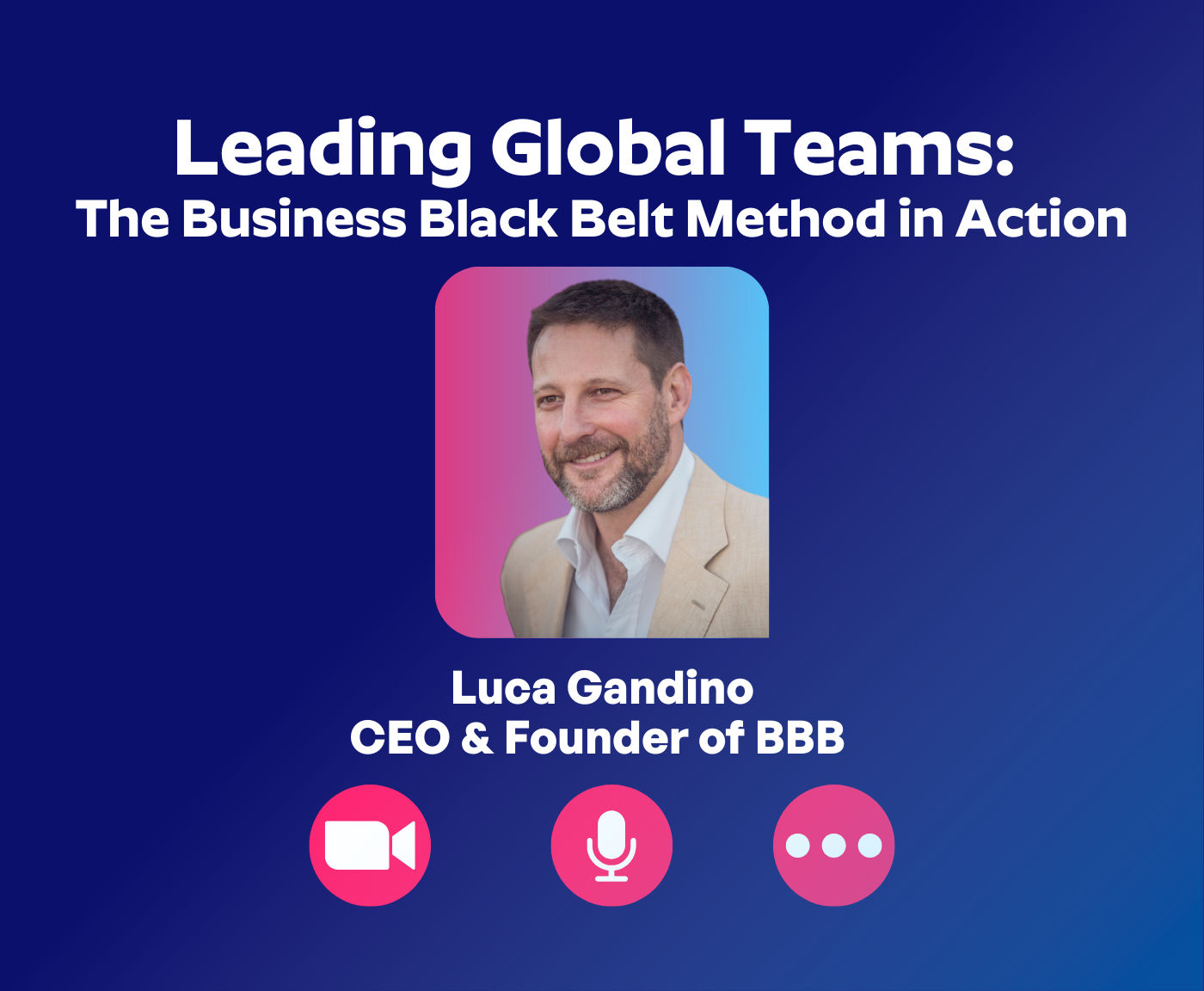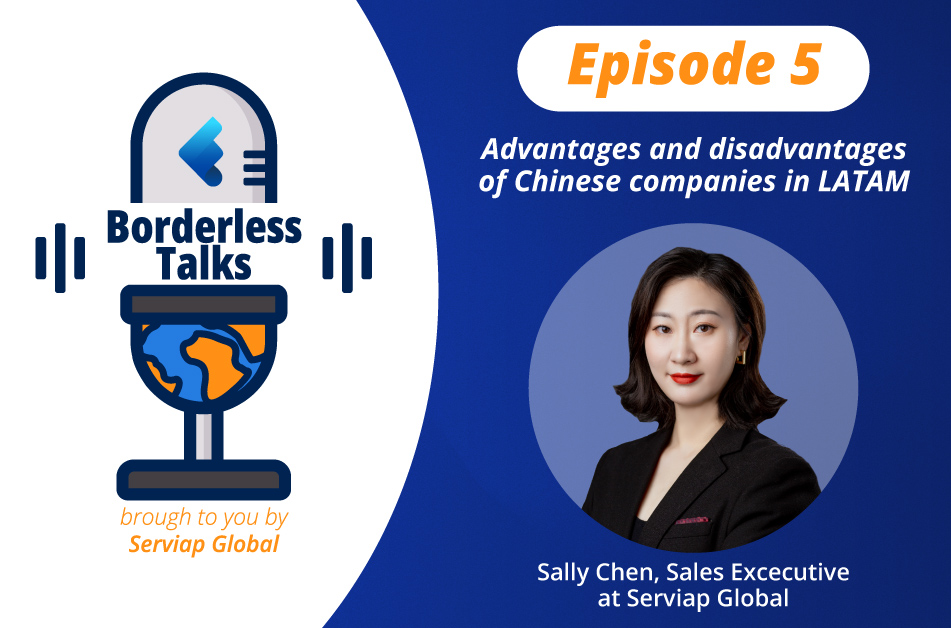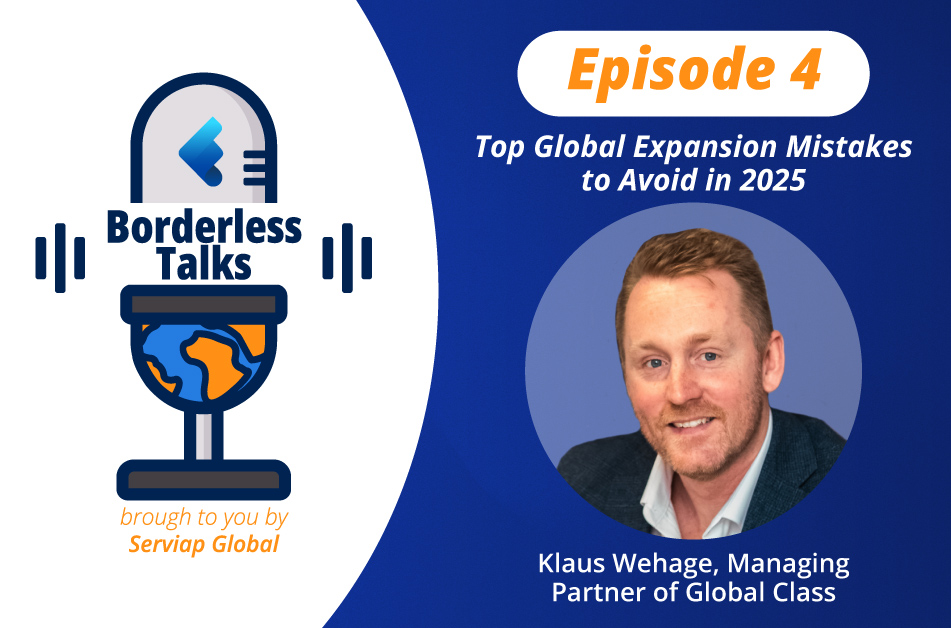Table of Contents
Scaling internationally isn’t just about entering new markets-it’s about transforming how you lead. The way you communicate, motivate, and build trust can determine whether your expansion succeeds or stalls.
In a recent webinar hosted by Serviap Global, Luca Gandino, CEO & Founder of Business Black Belt, shared powerful lessons drawn from decades leading multicultural teams across Europe, Latin America, and Asia.
Here are some of the most actionable strategies to help you develop a global leadership mindset that drives results.
Why Cultural Intelligence Drives Global Team Success
Luca emphasized that cultural intelligence is the foundation of international leadership. Leading teams in Mexico and Russia taught him that the same feedback can produce opposite reactions depending on local norms.
In Mexico, public confrontation damages trust. In Russia, avoiding confrontation signals weakness.
Tip:
Before applying your leadership style abroad, invest time in cultural reconnaissance-observe, ask, and learn how your team interprets authority, feedback, and collaboration.
Balancing Strength and Flexibility as a Leader
Borrowing from martial arts, Luca described dynamic balance-knowing when to stand firm and when to adapt.
Strength means clarity of purpose. Flexibility means adjusting tactics without losing direction. This balance helps you navigate uncertainty and maintain cohesion in multicultural teams.
Reflection:
Which situations in your expansion strategy require firmness? Where can you be more adaptable?
The Power of Intentional Inaction
Many leaders equate action with progress. But sometimes the most strategic move is to pause deliberately-a concept Luca calls intentional inaction.
He shared examples of global companies reducing unnecessary meetings, simplifying workflows, and empowering teams to act only when it truly adds value.
Consider:
What can you stop doing to improve focus and innovation?
Building Trust and Alignment Across Cultures
Leading multicultural teams requires more than shared goals-it requires shared understanding.
Luca’s methodology starts by assessing whether teams truly interpret objectives the same way. If not, misalignment grows and efficiency suffers.
Action Step:
Create space for open dialogue. Let teams express how they perceive goals and expectations, and adjust your approach to bridge gaps.
Transforming Challenges Into Growth Opportunities
Instead of reacting emotionally to setbacks, Luca recommends training yourself-and your teams-to respond strategically.
He calls this mindset shift moving from reaction to response-the hallmark of resilient leadership.
Key Question:
How can your current challenges serve as training grounds for long-term growth?
Explore more lessons in the full webinar: Leading Global Teams:The Business Black Belt Method in Action


How Serviap Global Supports Your Expansion:
At Serviap Global, we help companies:
- Hire and manage international talent compliantly
- Build high-performing multicultural teams
- Streamline global HR processes
If you’re planning to scale your business across borders, contact us today to learn how we can help.





























